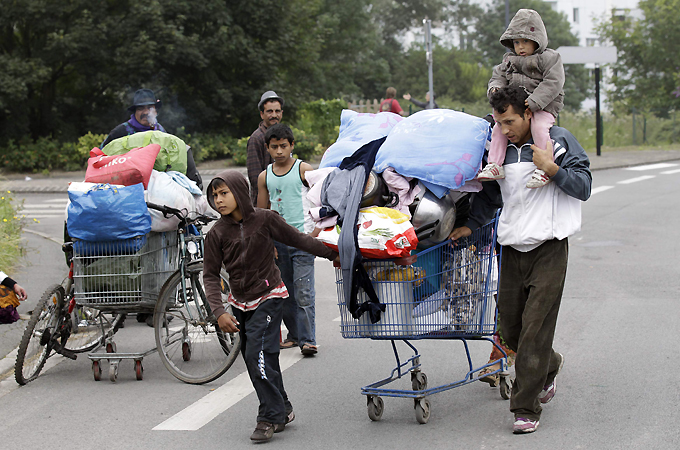By Pearl Rimon
Impunity Watch Reporter, Europe
LILLE, France –French authorities emptied two makeshift Roma camps that contained about 200 people near Lille and Lyon. No other living arrangements were offered to the deported Roma.

On the same day the camps were emptied, 240 Roma gypsies were flown from Lyon to Romania. This event was the biggest repatriation since Francois Hollande succeeded ex-president Nicolas Sarkozy in May. The 240 Roma flew back to Romania on a voluntary basis, $370 for adults and $184 per child. This policy was highly criticized because many believed that the Roma could easily use the money to return back to France.
“The French government is wasting huge amounts of money to give them holidays back in Romania,” said Valeriu Nicolae, founder of the Policy Centre for Roma and Minorities in Bucharest, an NGO which works to provide work and education opportunities to young Roma.
“What else do you think they’re going to do?”, he told left-leaning daily Libération. “After all, it is much more comfortable living in a French ghetto than a Romanian one. They stay a couple of weeks, then they go back to France.”
“What’s inconceivable for us is that people are thrown out without being told where they can go. We expected better after President Hollande’s words,” said Roseline Tiset of the Human Rights League. During his campaign, President Hollande promised Roma rights groups that if a camp were to be dismantled that alternatives would be offered. Father Arthur, a priest who defends Roma rights and had planned to baptise six Roma children on Thursday afternoon, said he felt “deceived”.
“What will become of these families? Everything is being taken away – it’s a breach of fundamental human rights.”
Interior Minister Manuel Valls said that the camps were unsanitary and posed challenges for those living in the surrounding areas.
About 15,000 Roma live in improvised camps near major French cities. In 2010, under Sarkozy, France underwent criticism for gathering hundreds of Roma gypsies from illegal camps and sending them back to Romania. The EU’s justice commissioner, Viviane Reding, compared this wave of deportation to the Word War II-era deportations.
For further information, please see:
Al Jazeera– France dismantles Roma camps in new crackdown—09 August 2012
Deutsche Welle — France expels first Roma under Hollande – 09 August 2012
France 24 — France dismantles Roma camps, deports hundreds – 09 August 2012



